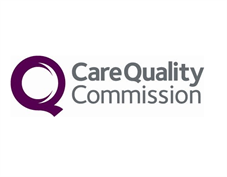CQC inspection reports
23 December 2022 - CQC publishes inspection reports on maternity care at King’s College Hospital and Princess Royal University Hospital (PRUH)

CQC publishes inspection reports on maternity care at King’s College Hospital and Princess Royal University Hospital (PRUH)
The maternity services at both King’s College Hospital and Princess Royal University Hospital (PRUH) have been rated ‘Requires Improvement’ overall following inspections by the Care Quality Commission (CQC) earlier this year.
This represents a change in rating at King’s College Hospital, which had previously been rated ‘Good’ overall for its maternity services. At its previous inspection, the maternity service at PRUH was combined with the gynaecology service and was rated ‘Good’. It is now a stand-alone service, so this is its first rating, which is ‘Requires Improvement’. Both hospitals are run by King’s College Hospital NHS Foundation Trust.
During their inspection in August this year, the CQC visited the maternity services at both King’s College Hospital and the PRUH, and spoke to staff providing care, as well as people who use the service.
King’s College Hospital
The maternity service at King’s College Hospital was rated ‘Good’ for being caring and ‘Requires Improvement’ for being effective, responsive, safe and well-led. Inspectors identified areas of good practice, but also a number of shortcomings in the service at King’s, which the Trust took immediate action to address.
Inspectors found the service did not control infection risks or manage medicines well. Inspectors also found some safety concerns, including a lack of recent simulations of obstetric emergencies, and out-of-date equipment safety checks. Policies and guideline documents were not always reviewed in line with their review date, and regular appraisals among some staff were found not to have taken place.
In response to the issues identified, the Trust took immediate action to address the concerns raised. Among the actions taken, there is now an increased number of housekeepers and sanitation stations on the unit to minimise infection risks. A full medicines safety review also took place, and improvements have been made to the way medicines are stored.
An assessment of every piece of clinical equipment in the unit has taken place, and where problems were identified, the equipment has been withdrawn from use. Escalation policies have been re-circulated to staff, and simulation training has been conducted. Posters detailing how to escalate concerns are now displayed throughout the unit, and all out-of-date policies have been reviewed, and updated where appropriate.
The CQC also noted areas of good practice, including making sure enough obstetric staff were on shift to care for women and keep them safe. They also noted that staff treated women with compassion and kindness, and provided emotional support to women, families and carers. They also gave women pain relief when they needed it, and key services were available seven days a week.
Princess Royal University Hospital (PRUH)
At the Princess Royal University Hospital (PRUH), the service was rated ‘Good’ for being effective, caring and well-led, and rated ‘Requires Improvement’ for being safe and responsive.
Inspectors found the service provided mandatory training in key skills to all staff, but did not always ensure everyone completed it. The service didn’t always control infection risks well, and daily equipment checks were not always completed. As at King’s College Hospital, immediate steps were taken to address the concerns raised.
Inspectors at the PRUH did note that the service managed safety incidents well, that staff recognised and reported incidents and near misses, and that the service provided care and treatment based on national guidance and evidence-based practice, with managers regularly checking to make sure staff followed guidance.
Clare Williams, Chief Nurse and Executive Director for Midwifery at the Trust, said:
“We want to provide the very best care for women and families using our services, so we were naturally disappointed with some of the CQC’s findings, which we took immediate action to address.”
“Our focus now is on making sure we embed the improvements we have put in place, so ensuring we drive up standards across maternity services as part of our commitment to provide safe, high quality care at all times.”
You can access the King’s College Hospital maternity inspection report and the Princess Royal University Hospital maternity inspection report on the CQC website.
